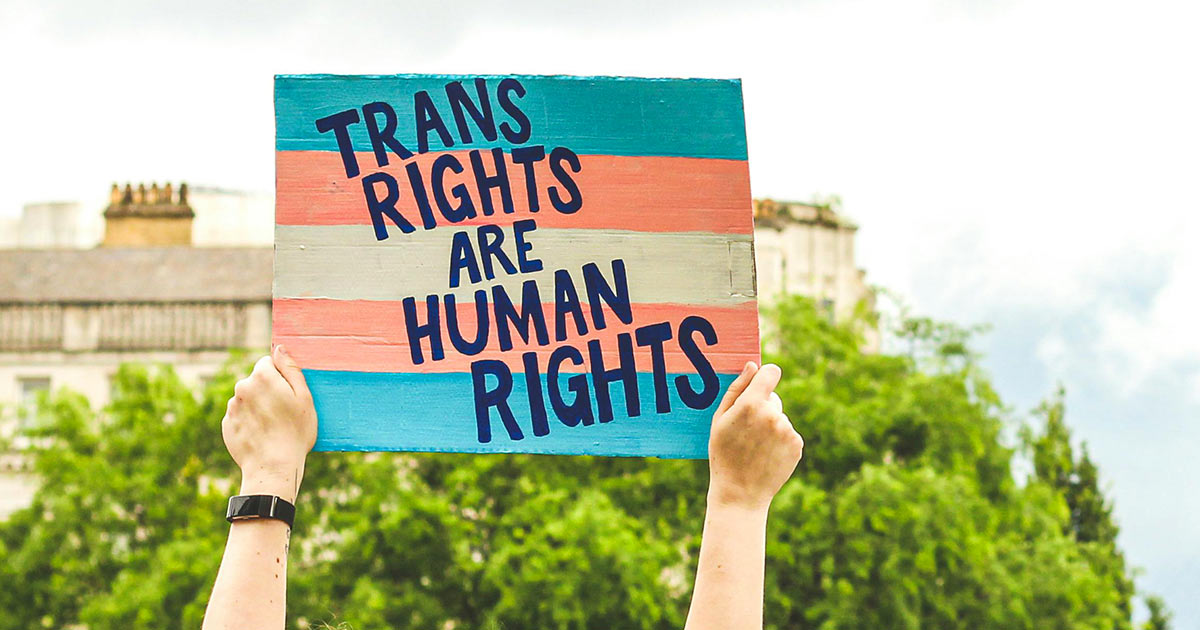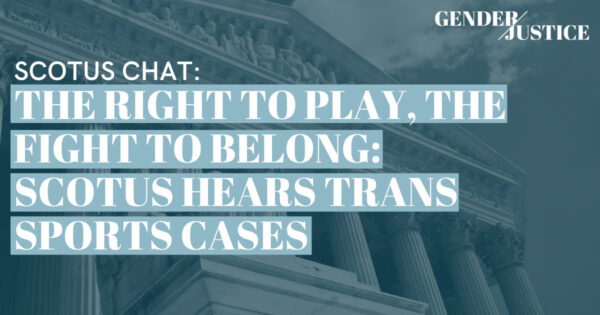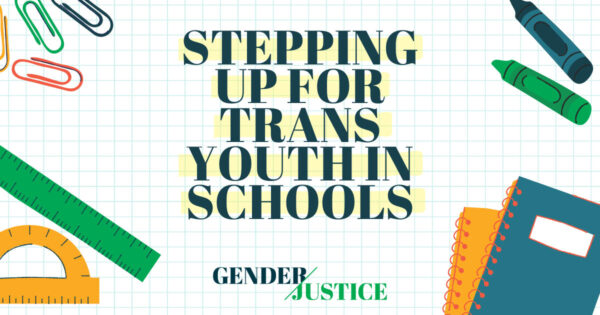
By Megan Peterson, executive director at Gender Justice
This opinion piece was originally published by the Minnesota Star Tribune on February 25, 2025. It is reprinted here with full permission.
A Feb. 23 Star Tribune column argued that transgender girls have an unfair advantage in women’s sports, claiming their inclusion threatens fairness. But let’s be clear: This argument isn’t based on facts — it’s the same tired anti-trans fear mongering, dressed up as Minnesota Nice. It leans on cherry-picked anecdotes, ignores scientific research and conveniently sidesteps the fact that banning trans women from sports is illegal under Minnesota law.
There’s nothing wrong with asking questions about transgender athletes, but a column void of facts is problematic. Trans women are not men, and medically transitioning is a complex, well-studied process. Being assigned male at birth does not automatically make someone a stronger or faster athlete. In fact, after hormone therapy, trans women’s performance aligns with cisgender women’s performance. When it comes to both gender and athletic performance, the reality is far more complex than XX and XY, and clinging to outdated and oversimplified ideas about sex differences isn’t common sense — it’s just inaccurate.
Worse, the column’s author, Karen Tolkkinen, cloaks her argument in a veneer of reasonableness, suggesting that selectively barring trans people from public life is a fair compromise. It’s not. It’s discrimination.
In Minnesota, banning trans women from sports is explicitly illegal under the Minnesota Human Rights Act, which protects transgender individuals from discrimination. That’s why the organization I lead, Gender Justice, is suing USA Powerlifting in Cooper v. USAPL — because trans women are women, and denying them the right to compete is discrimination, plain and simple.
The idea that trans people harm sports is a myth unsupported by data. Trans athletes make up a tiny fraction of competitors — less than 0.002% of NCAA athletes — and most do not win championships. In fact, in Minnesota, where trans inclusion has been the norm for over a decade, there has been no “mass takeover” — only more girls enjoying the sports they love.
But this fight was never really about sports.
For years, a well-funded, politically motivated movement has targeted trans people in every aspect of public life, and sports have become one of their most effective battlegrounds. Why? Because sports tap into deep cultural values: fairness, competition, belonging. The anti-trans movement has weaponized these values, spreading myths that trans athletes pose a threat, echoing the racist rhetoric used to justify the exclusion of Black athletes – that they have an unfair advantage, their presence will ruin the game, that they don’t belong.
The fixation on trans athletes is a smokescreen. This movement isn’t really about protecting women or girls, competition or fairness — it’s about controlling who gets to exist openly and freely in our society.
There are real and well-documented threats to women’s sports, such as lack of investment, pay disparities and sexual abuse scandals, that don’t receive nearly the same attention — certainly not to the tune of $215 million spent on anti-trans ads during the presidential election. The groups claiming to “protect” women’s sports are conspicuously absent when it comes to advocating for equal pay, better funding or addressing the abuse of women athletes. That’s because their agenda has never been about protecting women — it’s about exclusion.
So, before we let another wave of moral panic take hold, let’s ask: Who benefits from this manufactured outrage? And what happens when we refuse to play along?
Minnesota has long been a leader in protecting transgender rights, being the first state to include transgender people under our human rights law. Our state high school league has upheld trans-inclusive policies for years, fostering a stronger, more inclusive sports environment that benefits everyone. As we take pride in being a refuge state where trans individuals and their families can live openly and authentically, we must recognize that the real threat to women athletes lies not in a small minority seeking to play, but the bad-faith attacks designed to divide us. Minnesotans must reject these distractions and continue leading the way in defending fairness, inclusion, and everyone’s right to play and participate fully in society.
Recent Commentary
- The Title IX Fight Isn’t Just About Sports. It’s About Civil Rights.
- SCOTUS Hears Trans Sports Cases
- How Schools and Educators Can Step Up for Trans Youth
- Three Things to Know About the Landmark Cooper v. USA Powerlifting Win
- Why the ERA Can’t Wait: Voices from the Minnesotans for Equal Rights Coalition
- Fall 2025 Newsletter & Annual Report
- Anti-LGBTQ+ Censorship in Public Schools
- Skrmetti’s Impact on Gender-Affirming Care in MN & ND
- Spotlight: How to Have Meaningful Conversations on Trans Rights
- The People’s Session: North Dakotans Chart Their Own Path
Learn more about the topics on this page
Related Content

The Title IX Fight Isn’t Just About Sports. It’s About Civil Rights.
Across the country — including at the U.S. Supreme Court — courts are being asked whether Title IX protections extend to transgender students. And with those cases, a dangerous lie is being repeated: that Title IX requires schools to exclude trans women and girls in order to “protect” girls’ sports. That’s false. Legally, historically, and constitutionally.

SCOTUS Hears Trans Sports Cases
On January 13, 2025, the U.S. Supreme Court heard oral arguments in two pivotal cases about transgender students’ right to participate in school sports: Little v. Hecox (Idaho) and West Virginia v. B.P.J. At the heart of both cases is the question of whether state laws that ban transgender girls from playing on girls’ sports teams violate either Title IX or the Equal Protection Clause of the U.S. Constitution.

How Schools and Educators Can Step Up for Trans Youth
In a special Trans Equity Training this fall, special guest speaker Rebecca Allen — a community leader, recent graduate from the University of Minnesota’s Master of Public Affairs Program, and a proud parent of two — shared her research on best practices for schools to support trans and non-binary students.

Milestones of Progress
Our organization has celebrated some big wins over the years and we continue to grow in the ways we harness strategic impact litigation, legislative advocacy, and education to push the law forward when it comes to gender equality. Check out what we’ve accomplished, together.